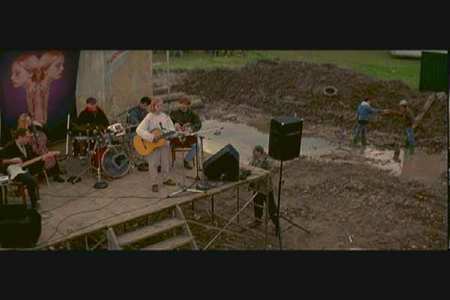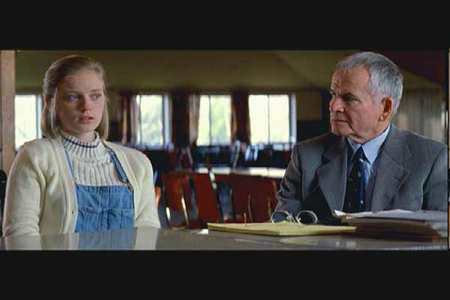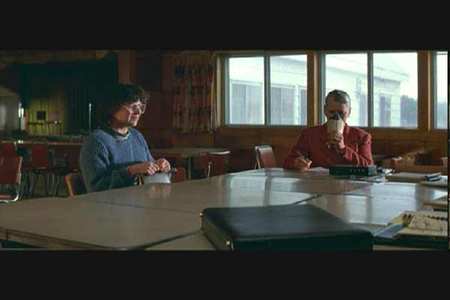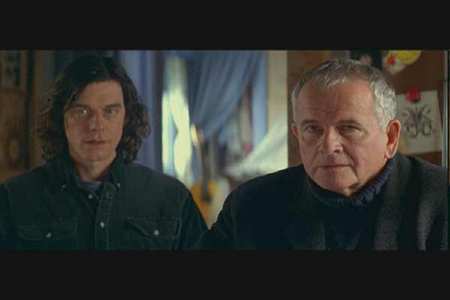Review of Sweet Hereafter, The
Introduction
Atom Egoyan’s adaptation of Russell Banks’ haunting novel makes a belated arrival onto DVD thanks to the Momentum Pictures World Cinema Collection. Ian Holm plays Mitchell Stevens, an opportunistic uptown lawyer who visits a snow-swept town, stricken by grief after a freak bus accident claimed the lives of many of the town’s children. Promising to turn their anguish into dollar signs, Stevens sets about amalgamating evidence from the town’s bereaved, while at the same time dealing with his troubled, estranged daughter.

Video
A mixed bag. First we get the rather strange non-anamorphic ratio of 1:1.99, which is just strange enough to cause stress to just about any television you can find. If there is a little grain here and there, the colours are radiant and the images clear. Besides, Paul Sorossy’s photography is so good to render such superficial complaints rather mute. One look at the chilling simplicity of the recreated accident itself will silence the most cantankerous of objectors.

Audio
Unsurprisingly, ‘The Sweet Hereafter’ will not offer a decibel-heavy work-out for your sub-woofer, but Mychael Danna’s beautiful score speaks for itself and the dialogue is clear.

Features
A badly presented theatrical trailer and a 51 minute documentary which is basically an interview with Egoyan buoyed by clips from his films. Its interesting, Egoyan being a humane and pragmatic intellectual to be reckoned with, but the preponderance of stupid camera-tricks is irritating and the slap-head quizzing Egoyan looks like he’s just out of nappies. A good start.

Conclusion
First of all, Holm is extraordinary. Parched, yet still oddly charismatic in weary middle-age, he plays Stevens with a sense of neurotic anxiety so subtle you can’t help but marvel his restraint. Witness the unforgettable monologue where he describes his infant daughter’s brush with a poisonous spider, which perfectly encompasses Stevens’ agonizing ambivalence over his drug-addled wayward daughter in later life and, indeed, his emotional fragility in general: “Love… turns to steaming p***.” It’s a scathing, complex, unsentimental performance that manages to be even more achingly human because of it. If only the other characters were so well served, Egoyan’s approach is hardly superficial, but his favoring of lyrical imagery and symbolic development over character renders the majority of the townspeople rather frustratingly obtuse. A fact made all the more pressing by the fact that this is a movie about their dilemmas as much as Stevens’.
Fans of Banks’ novel will appreciate the detached, observatory nature of Egoyan’s camera, but will probably be either irritated or confused by his constant dislocation of time, narrative and continuity (an Egoyan trademark.) That said, those used to the now fashionable (if misguided) notion of warping every story in a non-linear pretzel structure will admire the deft confidence of Egoyan’s attempt. If the allegorical introduction of the Pied Piper overstates rather than illuminates the allusion to Grimm’s fairytales (a point made far more evocatively by Danna’s score) the snow-drowned town is as potent a metaphor as ever for a story where a blanket surface façade covers an unspoken insidious undercurrent that lies at the heart of this quiet town, whose waking-dream shellshock reveals families held together by the unbreakable bonds of guilt and secrets. Flawed, but worthwhile.
Your Opinions and Comments
Be the first to post a comment!